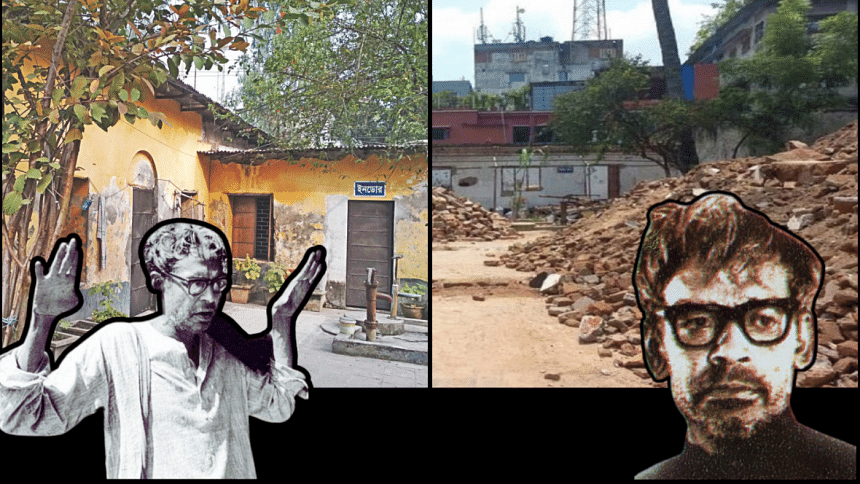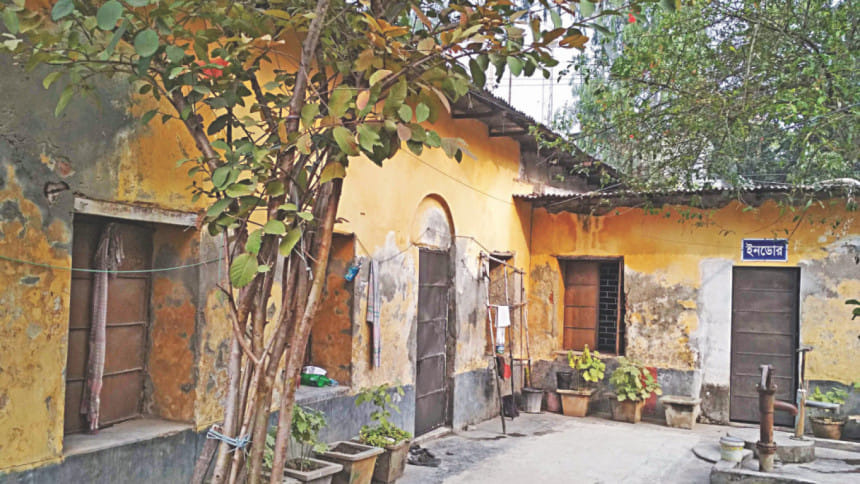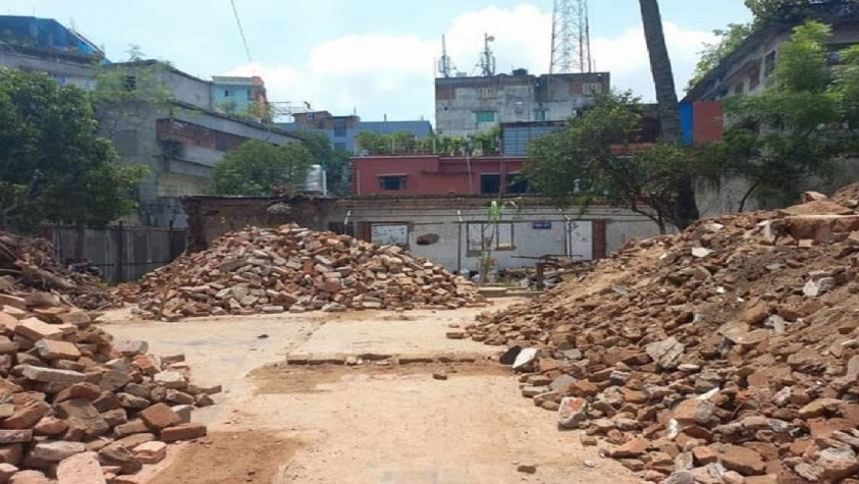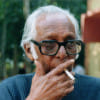Ritwik Ghatak’s ancestral home demolished in Rajshahi

The ancestral home of legendary Bengali filmmaker Ritwik Kumar Ghatak in Rajshahi has been reduced to rubble, sparking outrage among local residents and cultural activists.
Situated in the Ghoramara neighbourhood, the house where Ghatak spent his formative years was demolished, leaving nothing but debris. News of the demolition on Wednesday drew filmmakers to the site, where they confronted authorities from the neighbouring Rajshahi Homoeopathic Medical College, accused of orchestrating the destruction.

The contractor responsible for the demolition claimed it was done under the college's orders. However, the college principal denied any involvement, suggesting that former students were behind the act.
Ghatak, a towering figure in global cinema, spent his early life in this home, attending Rajshahi's prestigious Collegiate School and Rajshahi College. It was here that he edited the literary magazine Abhidhara and led local theatre movements. His niece, renowned writer Mahasweta Devi, also lived in this house during her time in Rajshahi.

Despite previous efforts to preserve the home, these plans failed. In 1989, the Ershad government leased the 34-decimal property to the Rajshahi Homoeopathic Medical College and Hospital. In 2019, part of the house was demolished to construct a bicycle garage, sparking protests. In response, the district administration vowed in 2020 to preserve the house. Yet, as of Wednesday, no trace of the building remains.

Tensions escalated at the site as filmmakers and journalists demanded answers from the college. The principal denied direct responsibility, claiming unknown individuals carried out the demolition. Nevertheless, labourers at the scene confirmed they had been hired by the college to clear the site.
In response to public outrage, the Ministry of Land intervened, halting further construction. College principal Anisur Rahman recounted the events leading up to the demolition, stating that current and former students had pushed for the removal of certain banners, including one of Bangabandhu Sheikh Mujibur Rahman, before proceeding to demolish the house. Rahman insisted the act was not carried out under his direction.

Determined to preserve Ghatak's legacy, local filmmakers formed a human chain and demanded justice. They met with Rajshahi Deputy Commissioner (DC) Shamim Ahmed, who promised a full investigation. The DC confirmed that the district administration had requested the Ministry of Land release the house from its lease and grant it preservation status in Ghatak's name. That request remains pending.
Filmmaker Mohammad Tauqir Islam, speaking to the media, condemned the demolition, saying, "In 2019, part of Ritwik Ghatak's home was destroyed for a bicycle garage. Now, they've wiped out the entire structure. This is unacceptable, and we demand justice."

DC vowed that those responsible would face punitive measures and that the district would work with all parties to ensure Ghatak's legacy is protected.
Ritwik Ghatak, born on November 4, 1925, in Dacca, Bengal Presidency, British India (now Dhaka, Bangladesh), was a pioneering filmmaker, screenwriter, and intellectual whose influence on Indian cinema endures. Ghatak is celebrated as one of the most distinguished Indian directors of the 20th century, alongside Satyajit Ray and Mrinal Sen. His work is known for its profound engagement with social and political issues, particularly the trauma of Partition and the struggles of the displaced.

Ghatak's most recognized films include "Meghe Dhaka Tara" (The Cloud-capped Star) (1960), "Komal Gandhar" (1961), "Subarnarekha" (1965), and "Titash Ekti Nodir Naam" (1973). His groundbreaking film "Jukti Takko Aar Gappo" (Reason, Debate, and a Story) (1974) stands as a testament to his vision and artistry, blending narrative storytelling with a critical examination of society.

A professor at the Film and Television Institute of India (FTII), Ghatak mentored a generation of filmmakers. Beyond film, he wrote numerous short stories, plays, and articles on cinema, leaving a lasting legacy in both academic and artistic circles.
Ghatak's later years were marred by severe alcoholism, which contributed to his premature death on February 6, 1976, in Calcutta, West Bengal, India. While he remained relatively unknown outside India during his lifetime, Ghatak's films have since gained greater recognition, allowing his unique voice to be appreciated by cinephiles around the world.

 For all latest news, follow The Daily Star's Google News channel.
For all latest news, follow The Daily Star's Google News channel. 










Comments